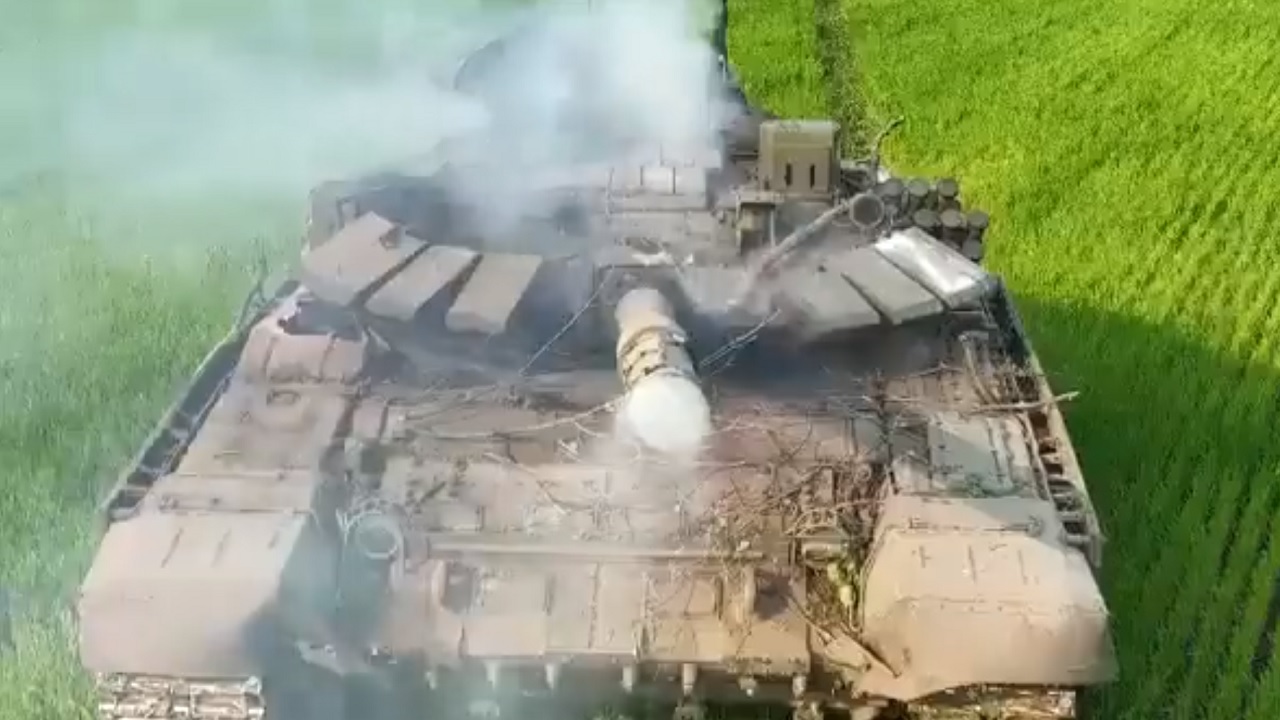We need to start thinking in a serious way about the relationship between the Russia – Ukraine War and the 2024 US Presidential election. It’s not wrong to feel disgust at the idea of treating the Russia-Ukraine War as an American domestic political issue; people are dying, and cities are being ground to dust on the front lines as Russians and Ukrainians fight for stakes far more dire than Republicans and Democrats could possibly conceive.
Note: This Is Part I of a Two-Part Series. Part II Can Be Found Here.
Nevertheless, unless the war ends decisively in the next eighteen months, the outcome of the 2024 US Presidential election could be critical to the outcome of Russia’s war on Ukraine. Both Moscow and Kyiv understand this, and both will do their best over the next eighteen months to shape the contours of that election. Russians and Ukrainians must take the political impact of the war with absolute seriousness, and as a consequence, we should do the same thing.
The Stakes
Ukraine faces a relatively simple set of choices. Ukraine likely could not hope for a better friend in the White House than Joe Biden, who has spearheaded an extensive program of international support for Ukrainian military operations.
Biden hasn’t handed over everything to the Ukrainians, but this aid has included munitions, advanced technology, financial assistance, and technical planning and communications support. Moreover, Biden has thrown the strength of the US diplomatic and financial systems behind Ukraine, creating and maintaining an international coalition and a massive sanctions regime against Russia. We could hardly imagine a more aggressive supporter of Ukraine in the White House at this moment.
Donald Trump, by contrast, isn’t a perfect candidate for Russia; the mercurial ex-President has never been a reliable partner for any foreign country, and it would be a mistake for Russia to count on Trump’s advocacy. In his first term, Trump demonstrated a complete inability to manage the national security state, including his own party and his own appointees. That said, Trump has harshly criticized President Biden’s decision-making on Ukraine, voicing sentiments that border on expressions of open sympathy with Russia and President Vladimir Putin.
The GOP remains conflicted over the degree to which the US should continue to support Ukraine, with some voices advocating continued support while others have sided with Trump. But the trendlines are clear. Florida Governor Ron DeSantis, Trump’s most plausible GOP opponent, has already shifted his rhetoric on Ukraine to match Trump. Josh Hawley has led the intellectual vanguard of opposition to additional support for Ukraine, with Marjorie Taylor Greene making the populist case. Donald Trump is extremely likely to be the 2024 GOP Presidential nominee, and even if he isn’t the GOP will probably still lean in the direction of stopping or sharply curtailing assistance to Ukraine.
Political Impact Thus Far
How might the war play out on the campaign trail? Wars that do not directly involve the United States don’t normally have much of an impact on US Presidential elections, although there are exceptions. Keeping the United States out of World War I was a critical issue in the 1916 election, although President Woodrow Wilson’s pledge to remain neutral collapsed rapidly after his inauguration.
World War II had a similar impact on the 1940 election, with both candidates pledged to keep the US out of the war (even as President Roosevelt stepped up support for Great Britain). Those examples do not bode well for US efforts to limit its engagement with Ukraine, but they do suggest that the incumbent has some advantages by virtue of his ability to appear strong and decisive on a foreign policy question.
If the war ends before 2024, it probably won’t have much impact on the election. If Ukraine wins, Biden will derive some benefit, but the American public has demonstrated a resolute capacity for forgetting anything and everything about foreign policy that happened more than a few months ago. Trump will lose a talking point if Ukraine wins and may suffer from making pro-Russia statements over the course of the conflict, but given the velocity of Mr. Trump’s rhetoric on just about any issue we’re unlikely to feel the absence.
Russia’s invasion of Ukraine may have world-historical significance. Still, there’s no guarantee it has had much of an impact on American politics or that it will affect the course of the 2024 election.
However, the war is not over, and both Russia and Ukraine still have the means and motive to try to affect the course of the 2024 Presidential election.
About the Author
Dr. Robert Farley has taught security and diplomacy courses at the Patterson School since 2005. He received his BS from the University of Oregon in 1997, and his Ph. D. from the University of Washington in 2004. Dr. Farley is the author of Grounded: The Case for Abolishing the United States Air Force (University Press of Kentucky, 2014), the Battleship Book (Wildside, 2016), Patents for Power: Intellectual Property Law and the Diffusion of Military Technology (University of Chicago, 2020), and most recently Waging War with Gold: National Security and the Finance Domain Across the Ages (Lynne Rienner, 2023). He has contributed extensively to a number of journals and magazines, including the National Interest, the Diplomat: APAC, World Politics Review, and the American Prospect. Dr. Farley is also a founder and senior editor of Lawyers, Guns and Money.

